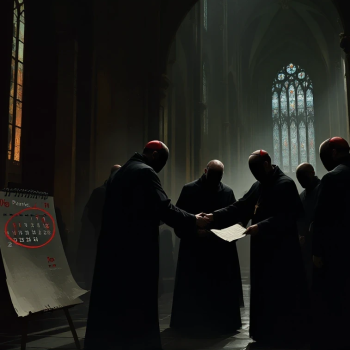Radical Islam is, in most places where it appears, an expression of rising expectations and fascination with what appears to be new and simplified rather than a devotion to faith. While traditional Islam calls for extensive study of the religion, radical Islam strips the religion to certain conventions and even limits the frequency and location of prayers. One group of mainly non-Muslim observers derives today's Muslim radicalism from the influence of German national socialist totalitarianism, imported from Europe. This exposes another paradox of Islamic extremism: while the views and actions of Muslim radicals resemble those of modern non-Muslim radicals, the problem of extremism has existed in Islam from its beginning. If it is not conservative, traditional, or long-established, this is because radical Islam was defeated from within, in its previous iterations.
The future of Islam depends on the conclusion of the cycle of radicalization that began in 1979 with the Khomeini regime in Iran; continued with the increase of Wahhabi aggressivity, based in Saudi Arabia and in competition with the Iranian revolutionary appeal; then by Taliban domination of Afghanistan and expansion of Pakistani jihadism. The clerical regime in Iran is destined to end sooner rather than later, and social reform in Saudi Arabia (presuming disestablishment of Wahhabism as a sole official interpretation), has been initiated in a limited manner by Saudi King Abdullah. The success of these developments within the two leading Muslim societies will open the way to the reestablishment of the intellectual pluralism, based on diversity of opinion, that characterized the greater part of Islamic history. In that context, the future of Islam may be productive of collective stability, spiritual renewal, and positive, respectful relations with the rest of the world's faiths.
Stephen Suleyman Schwartz is the Executive Director of the Center for Islamic Pluralism in Washington, DC and author of The Other Islam: Sufism and the Road to Global Harmony, The Two Faces of Islam: Saudi Fundamentalism and Its Role In Terrorism, and Sarajevo Rose: A Balkan Jewish Notebook. Schwartz has pursued a long literary and journalistic career. He was a staff writer for the San Francisco Chronicle for ten years and was secretary of the Northern California Newspaper Guild, AFL-CIO. He became Muslim while working under contract to the international community in Bosnia-Hercegovina in 1997.




